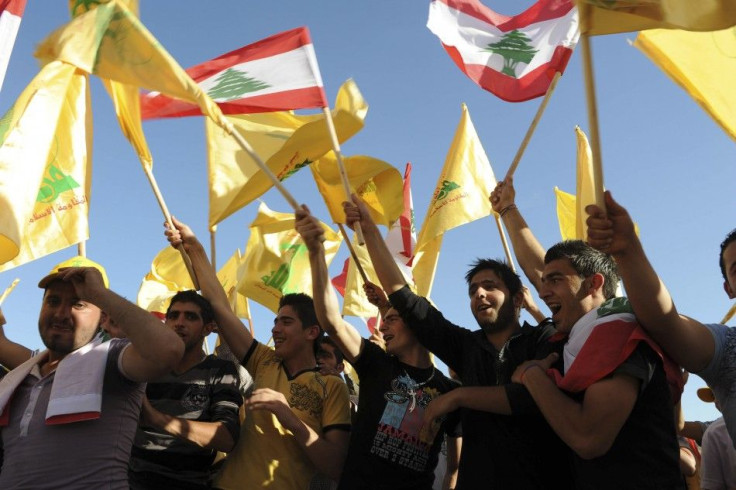EU Could Classify Hezbollah As Terrorist Group, US State Department Says

If the hints are to be believed, the European Union may soon be adding Hezbollah to their list of terrorist groups.
During an address at the Brookings Institution, Daniel Benjamin, the State Department's coordinator for counterterrorism, said the United States is "urging countries to take a wide range of range of steps to crack down on Hezbollah and the Qods Force."
Hezbollah is a Lebanese Shiite Muslim movement and militia. The Qods Force is part of the Iranian military.
"We've been engaging with our partners in Europe, and we are cautiously optimistic about the prospects for an E.U. designation of the group."
When interviewed later by the Jerusalem Post, Benjamin said he couldn't put a time frame on when such action would occur.
A terrorist designation could be devastating for Hezbollah, financially and politically. Matthew Levitt, director of the counterterrorism program at the Washington Institute and author of a current book on Hezbollah, told the IBTimes that there is definitely building momentum against Hezbollah in Europe. "It's not that people are gung-ho about it," said Levitt, who recently returned from a trip to Europe, "It's that people are less resistant."
Levitt pointed to a series of cases of attacks or attempted attacks suspected to be from Hezbollah. Two were in Cyprus, and of particular suspicion is the bus bombing in Bulgaria last July that killed five Israeli tourists and bore hallmarks of a Hezbollah attack.
"Obviously if the Europeans feel that the proof is decisive then they'll have to confront the fact that Hezbollah carried out an attack in Europe," Benjamin told the Post.
Levitt said that these attacks, combined with suspected recruiting efforts in several countries, have people "on edge."
"It [the terrorist designation] would have an impact on Hezbollah, but it depends on how the designation is done," Levitt said. "It would be more effective if the E.U. were to classify the entire organization." After all, Levitt pointed out, money is fungible. Ten dollars ostensibly raised for a hospital could easily be diverted to buy bullets.
But, he continued, it's more likely that the E.U. would only classify the "bad parts" of Hezbollah, such as the militant wing, rather than the entirety. "That would be more comfortable [for the E.U.]," he said.
"Hezbollah is still a duly elected party in Lebanon," Levitt explained. "There's nothing illegal right now about raising money for Hezbollah in Europe. But this would be a clear and distinct shot across the bow. It would have a huge impact on Hezbollah's stability."
Hezbollah, which operates mostly in Lebanon, is already classified as a terrorist group, in whole or in part, by the U.S., the U.K., the Netherlands, Australia, Canada, Israel, Egypt, and Bahrain.
The U.S., the U.K. and the Dutch have previously urged the E.U. to classify Hezbollah as a terrorist organization. British Foreign Secretary William Hague said on Sept. 11, 2012, that he would "like to see the EU designate and sanction the military wing of Hezbollah."
In October, John Brennan, a terrorism adviser to the White House, told reporters that, "Failure to designate Hezbollah as a terrorist organization makes it harder to defend our countries and protect our citizens. We call upon our European allies and partners – including the EU – to join us, not only in recognizing Hezbollah’s terrorist and criminal activities, but in condemning and disrupting those activities."
Levitt said that he was "cautiously optimistic" that this could happen in the "not too distant future." "It depends on what happens with the investigation in Cyprus and Bulgaria," he explained. "I don't think it's happening tomorrow. But I can tell from personal experience, threes greater receptivity to the idea, and less of a knee-jerk reaction against it."
© Copyright IBTimes 2024. All rights reserved.












